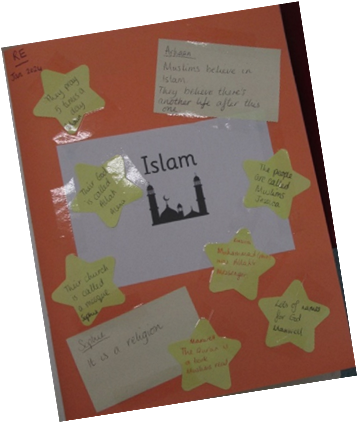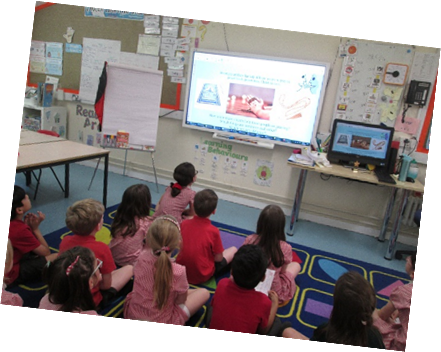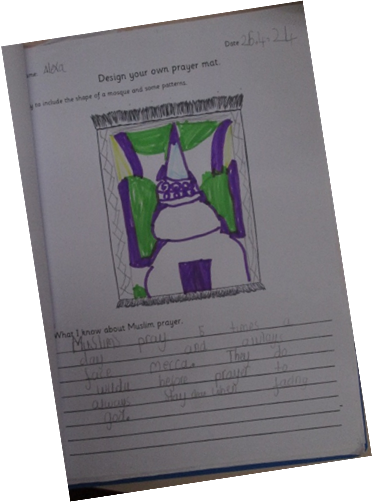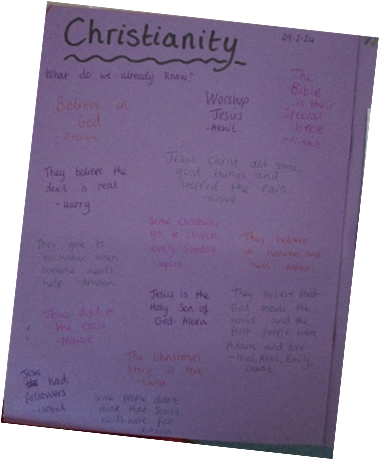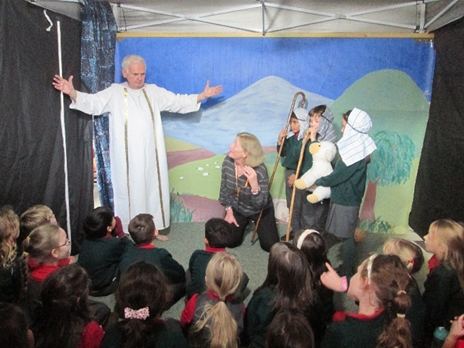Religious Education
‘Differences were meant not to divide, but to enrich.’
J. H. Oldham
At Holmesdale, we want our children to notice their sense of identity and belonging through self-awareness and reflection. We aim to give children the knowledge and skills they need to develop their interpersonal skills; learning how to articulate their own views and beliefs (religious or otherwise), whilst respecting that others have the right to differ in their views in this diverse world. Children at Holmesdale will also begin to develop their religious literacy, i.e. their knowledge of religious beliefs and practices. Through our comparative units, children will develop the skills of questioning, empathy, evaluating and synthesizing information, allowing them to become open minded and respectful future makers. We have identified 4 ‘big ideas’ which run through our curriculum: beliefs, context, diversity and ethics & philosophy. These ideas thread through all the year groups, connecting our learning together. The School's values will be revisited throughout school life, thus reinforcing the understanding of the links between our values and those of different religions, or none.
R.E. at Holmesdale
As a staff we agree that these are some of the ways we will implement R.E. learning:
- Reading sections from the Bible and other sacred texts.
- Discussions held in class.
- Books related to religion and values are explored including stories and non-fiction with focus on the natural world, conservation and history.
- Video clips are shared of places of worship, celebrations and rituals for different religions.
- Sparkfish, a local Christian organisation, visit to engage children in reflection and discussion of a spiritual nature. Year 2 attend a Sparkfish Christmas Journey which explains the Christmas story through performance.
- Local Church of England clergy visit for Assemblies on Christian teaching.
- School assemblies reinforce values, including certificates to acknowledge these.
- Children visit the local church to perform their Nativity plays with an invited audience of parents.
- Artefacts are used to make explanations of religious practices more immediate.
- Religious and secular art is explored and recreated, including Christmas cards and Diva lamps.
- Inviting parents in to read stories or talk about their own religious festivals
- Planned inputs including stories and video clips to show festivals and celebrations with opportunities for discussion and questioning at relevant times of the year, e.g. linking festivals of light such as Christmas, Diwali and Hannukah.
- Children are given high quality feedback in the moment.
As with all areas of our curriculum, we have drawn on research evidence to shape our teaching and learning pedagogy. For more information, please see our Greensand Pace Model.
What the children have said about R. E.
"R.E. tells us about the world and people that live in it" - (Yr 1)
"It’s interesting to see what different festivals there are that people celebrate, and you can celebrate with them too" - (Yr 2)
"I am special and unique" - (Yr R)
"I like learning about what other people believe in" - (Yr 1)
"It’s important to be respectful of what everyone believes, even if it’s a bit different to what you believe" - (Yr 2)
